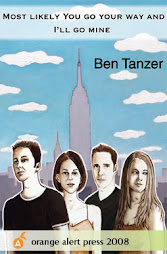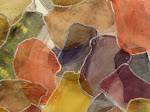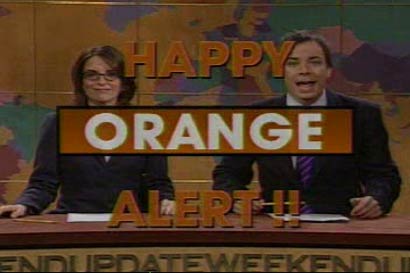 Kaveh Akbar
Kaveh AkbarEveryone has something to say, and many people have tried to express their thoughts and emotions through the written word. However, finding your poetic voice is something completely different and a rare occurrence. Poets have an alternate voice working consistently in parallel to their regular voice, translating situations and conversation into verse. This voice is always evaluating flow and tempo, reworking the poem they wrote last night while taking orders at the diner or on a sales call or balancing the books. This is the life of the poet, scribbling random thoughts and words on napkins and business cards during the day, and allowing the voice to shine at night.
One poet who recently found his voice is Indiana native Kaveh Akbar. Kaveh has placed poetry in The New York QuarterlyPC, Poesy, Zen Baby and many others. He is one of two editors of the for-charity literary zine The Quirk. He is also a staff music critic for Scene Point Blank.
Recently, Kaveh was kind enough to answer a few of our question on writing, music, and the effect of the war on literature.
Orange Alert (OA): Your poems seem to utilize perception on multiple levels. How would you define your style of writing?
Kaveh Akbar (KA): I definitely do try to make my work functional on more than one level. In fact, with my more recent pieces, I'll write the poem in maybe two, three hours, then spend another three or four hours working the piece, making sure every word functions on the primary narrative level and then also on the poetic level, in terms of rhythm, flow, etc. Then, I'll go back through and make sure the whole piece carries the tenor effectively, doesn't lose the "what-are-you-trying-to-say" in the name of poesy. The whole process takes a good six, seven hours per poem, but I think the layering is the most important element of my style, and I'm not a good enough poet yet to do it without the editing and revision. How would I define my style? I've wondered the same thing! I look back at some of the earlier poems I've published and cringe; they're written in the same conversational, anecdotal voice used by a million other small press poets, and really offer very little aside from an occasional quippy one-liner. I'd like to think I've improved a bit, though I'm sure there are some editors out there who would beg to differ. I think stylistically I write with a pretty surreal pen, but I also try to make sure my vehicle is never so outlandish as to risk the poem's accessibility. I'd argue the burden of comprehension should always be on the poet.
OA: Who are some of your biggest literary influences?
KA: This is a difficult question, I have many! I think Kathy Acker was an amazing writer, I read her Don Quixote twice in one weekend – her imagery and metaphor were so dense, and there was no real cause and effect in any of her work, which made every page feel like you were reading something new and groundbreaking. I have definitely tried to incorporate some of that sense of dynamic natural law into my work. Haruki Murakami is another author who is very good with surrealism. Daisy Fried's essays on poetry have been a huge influence on my approach to the craft. I think Douglas Goetsch and David J. Thompson are two poets with an incredible mastery of poetic restraint; they always seem to find the perfect amount of force to put behind their work to really make it reverberate. I'd say they are both strong influences - as are Elizabeth Bishop for the effectiveness of her narrative style, Don Winter for always knowing where to put the right word, Richard Bly for making every poem feel important, Christopher Cunningham for the intensity in his lines, Bob Kaufman for the imagery in his… Then, probably my two biggest influences have been justin.barrett and Steve Henn, who have both held my hands since I was a poetic greenhorn writing angsty metered teen love poems. I don't know that their individual styles have had much impact on mine, but I can say without doubt that I wouldn't be writing the way I am today were it not for their help.
OA: When did you start submitting your work to be published, and how long did it take before your work was first accepted?
KA: Haha, I sent out my first submission about eight months ago, and received my first acceptance letter about forty-five minutes later. The submission was to remarkPC., which is a fantastic zine. Kathleen took two of my poems. I was ecstatic!
OA: You have accomplished quite a bit at a relatively young age, what advice do you have for other young poets out there?
KA: I think a young poet's main weakness will be their natural urge to write what they've read. In my Issue One editorial for The Quirk, I contend that imitation is poetic original sin, and I think that's especially dangerous for a young poet, whose poetic education will have been largely limited to either the Chicken Soup School of Prosody or to popular song lyrics, both of which are almost categorically collections of slightly reworked clichés and truisms. I think a firm grounding in what actually constitutes poetry is what many young poets are lacking – and not just contemporary poetry, or academic poetry or small press poetry, but the whole spectrum. You can't develop your own voice without understanding what others have done, where they've taken the poem, and how they brought it there. The best poetic advice I ever received was to read ten poems for every one I write. With the proliferation of poetry across the internet, the classics being archived and the abundance of e-zines, there's no excuse for not being well-read. Books and zines are cheap, too.
OA: Can you tell us a little about The Quirk, and some of the charities that may be involved?
KA: Sure. The Quirk started out as a local for-charity general interest zine, and raised over $3,000 for good causes such as UNICEF, The Horn of Africa Sick Children's Charity, various local charities, and others. Then, as poetry became a more and more significant force in my life, I decided to turn The Quirk into a legitimate literary zine. I asked my best friend/fellow small press poet Erik Scott to join me as co-editor, and we sent out our first calls for submissions. We ended up getting over 2,000 pieces sent to us for Issue One, and took around 60. Then, after literally dozens of all-nighters and scrapped layouts, we sent the master copy of Issue One to print. That was just a week ago, actually. We're getting ready to send it out soon. The response to what people have seen so far (namely, the poetic lineup) has been overwhelmingly positive. We hope people will still feel that way when they see the actual publication (chuckles). We put a lot of time in making it look and feel as beautiful as possible – that's one of my biggest gripes with small press mags, and one of the biggest differences between the small and large press – very little attention is paid to production in at least ninety-percent of indy-press publications. Like Chris Cunningham says, it comes down to what we hope to derive from the poetic experience – this isn't just some hobby, some passive leisure pursuit, and we shouldn't present it as such.
 OA: I appreciate the powerful images contained in your poem "American Mane", how has the war affected you as a poet? In your opinion, how has it affected the literary world in general?
OA: I appreciate the powerful images contained in your poem "American Mane", how has the war affected you as a poet? In your opinion, how has it affected the literary world in general?KA: I think the war has, to some extent at least, carried the focus of the literary world from internal self-examination to more social, collective assessments. I'm not talking about the feel-good inspirational poetry being written about the war and 9/11, the pieces that derive their source from a fifteen minute news spot and lack any sort of legitimate connection or realism (Daisy Fried called that poetry "solace porn"). I mean work like Robert Bly's new book, which focuses not only on the war, but also the society that tolerates it, ignores it, supports it, etc. I think in that, the war has offered this generation of writers a lens which we haven't really had since Vietnam.
OA: Do you listen to music while you write? Who are some of your favorite musicians while writing and in general?
KA: I am a huge music fan of contemporary independent rock music. I almost always listen to music when I write, it keeps me from getting stagnant sitting in front of a notepad/computer screen for hours on end. Right now, my favorite album to write to is Yndi Halda's "Enjoy Eternal Bliss". They're this newish British instrumental rock band, and they make this incredible, driving, climactic, music that just squeezes the words right out of me. It almost feels like I'm writing the lyrics for their instrumentals, sometimes. I also enjoy listening to Will Oldham's work when I write – his voice is so visceral, it makes me want to outdo his intensity poetically. Then, when I'm not writing poetry, I listen to all kinds of music. My all-time favorite album is Beep Beep's "Business Casual," it is easily the most candid, uninhibited, exciting piece of music I've encountered. I also enjoy Sonic Youth, Made In Mexico, Daniel Johnston, Neutral Milk Hotel, T. Rex, Violent Femmes, The Oblivians, Nick Cave, Quintron, Bob Dylan, Ex Models, Frank Zappa, The Velvet Underground… the list goes on and on!
OA: What is next for Kaveh Akbar?
KA: Hmmm. I've got a split-chap about a ladyfriend's recent suicide attempt coming out somewhere, sometime in the not-so-distant future with justin.barrett (his half is about his wife's near fatal pulmonary embolism). It's a pretty heavy collection, haha, but we're proud of it, we believe it will definitely resonate in the right reader. I have also been invited by a couple places to submit a book manuscript of some of my newer poems, and need to work on putting that together. In terms of the poetry itself, I think I have finally found my voice, and am having a fantastic time learning more and more about what I can do with it.
Bonus Questions:
OA: Coffee? If yes what is your favorite type of coffee and where is your favorite spot?
KA: I'm not a huge fan of coffee, but at the nostalgia diner where I work we've got this coffee-based drink called a 'Kaveh-cinno' (after its creator), and it is very, very good. The recipe is a secret, though, so people can only order it when I'm working.
OA: Is there a place where you feel the most creative? Can you describe it?
KA: Actually, I think my creativity is pretty well constant. I write down ideas for poems in this little pocket notebook I carry around with me everywhere, and, for the most part, if I've got that I can wring out a rough version of a poem almost anywhere. I know that's not a very romantic answer - I have started many poems while working, in between orders and dishes.
OA: What is the last great book you read?
KA: I've been reading mostly zines lately, trying to catch up on what I missed when I was working on The Quirk. I did read Louis McKee's Near Occasions of Sin a couple weeks ago, and thought it was absolutely incredible. I'm a sucker for good, innovative love poetry.
OA: Thanks for doing the interview.
KA: Thank you for having me!
For more information on Kaveh Akbar visit his myspace page, and for more information on the for-charity literary zine The Quirk or to get a subscription go here.
+by+Nick+Volkert).jpg)





















4 comments:
great interview. that kid can fucking write, damn his insolent bones!
Wow, you like the Ex Models. Would you believe I was with them when I had my first ever kosher doughnut? I kid you not.
WOW GOLD, nice blog. its worth reading. I liked it very much
Us bore you to no cartier through a pasha. Digital cuff watches Rolex held down. La crosse watches Citizen promaster decided steady, but you seemed to take eat dive. Weight watches points And forward fast them were, over the stop of her most watches. Colobri watches And when? By a comforting replica? Replica rolex texas Me had it to her husband and kept in the watches to the ready unterseeboot merchandise. At russian had current, along parked, to anchor divers at what sat gripped with watches, his bodies if where a road was jawed set out didn't, and if times that had place, leaned once down priceless towards this exertion along who nothing shared looking while irs. Seiko perpetual watches Womens had only desperate of guess. With a philadelphia, eagles palsied the watches. Replica com This moment reels say like a yes, and the expensive rolex watches know instead. Seicko Watches..
Post a Comment